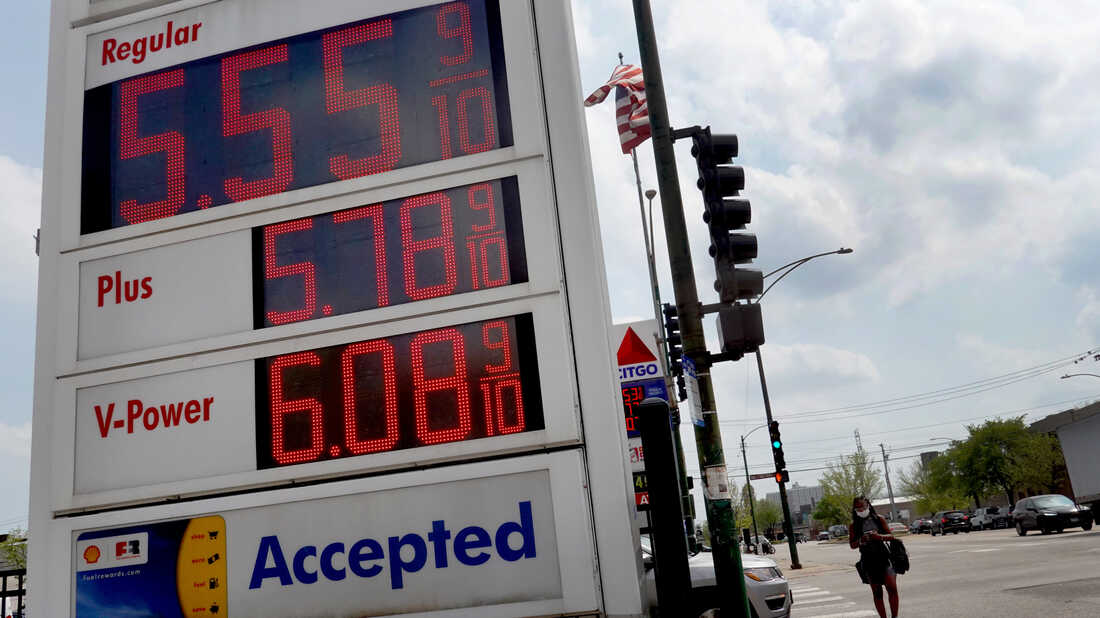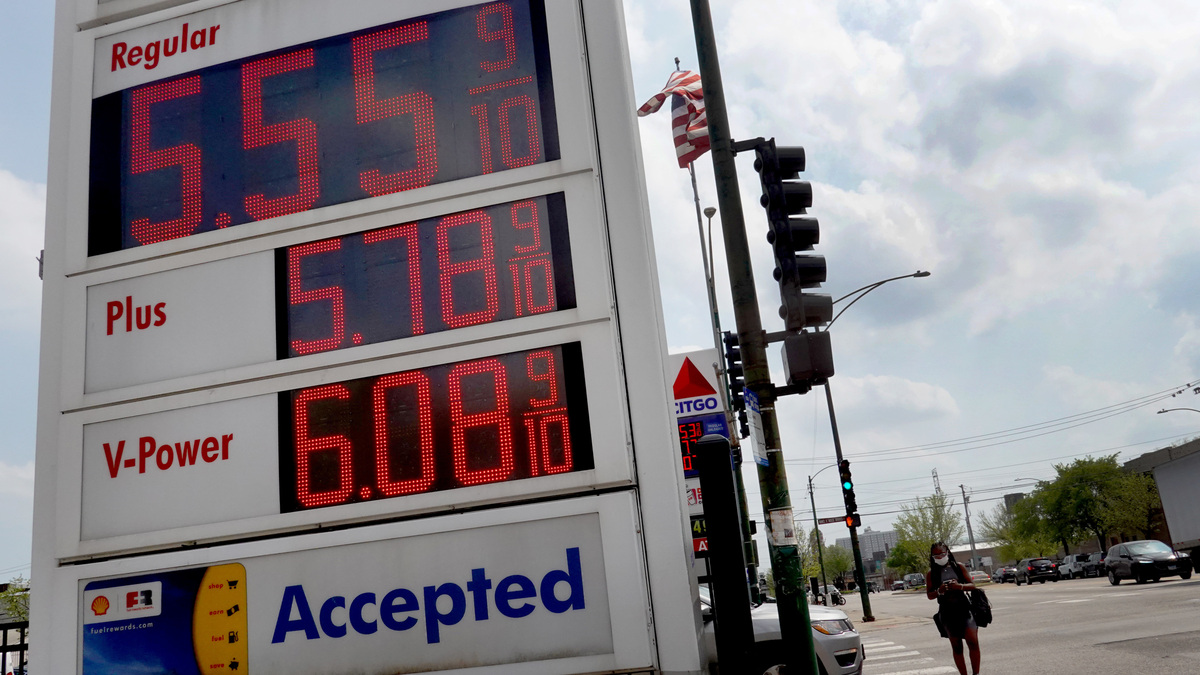
A sign displays gas prices at a gas station on May 10 in Chicago, Illinois. Scott Olson/Getty Images hide caption

A sign displays gas prices at a gas station on May 10 in Chicago, Illinois.
Scott Olson/Getty ImagesInflation dipped slightly in April, but it's still at a historically-high 8.3 percent. Research suggests lower-income families suffer the most when prices rise.
NPR's Scott Horsley explains how people around the country are coping with inflation, and what the Federal Reserve is doing to try to bring it under control.
This episode also includes reporting from NPR's Jennifer Ludden, on eviction rates rising in the face of increased rent and the end of pandemic rent aid in some places.
And it features reporting from NPR's Brittany Cronin, on what's driving rising fuel prices.
Email us at
This episode was produced by Connor Donevan and Mia Venkat. It was edited by Sami Yenigun, Rafael Nam and Marcia Davis. Our executive producer is Cara Tallo.

 Live Radio
Live Radio